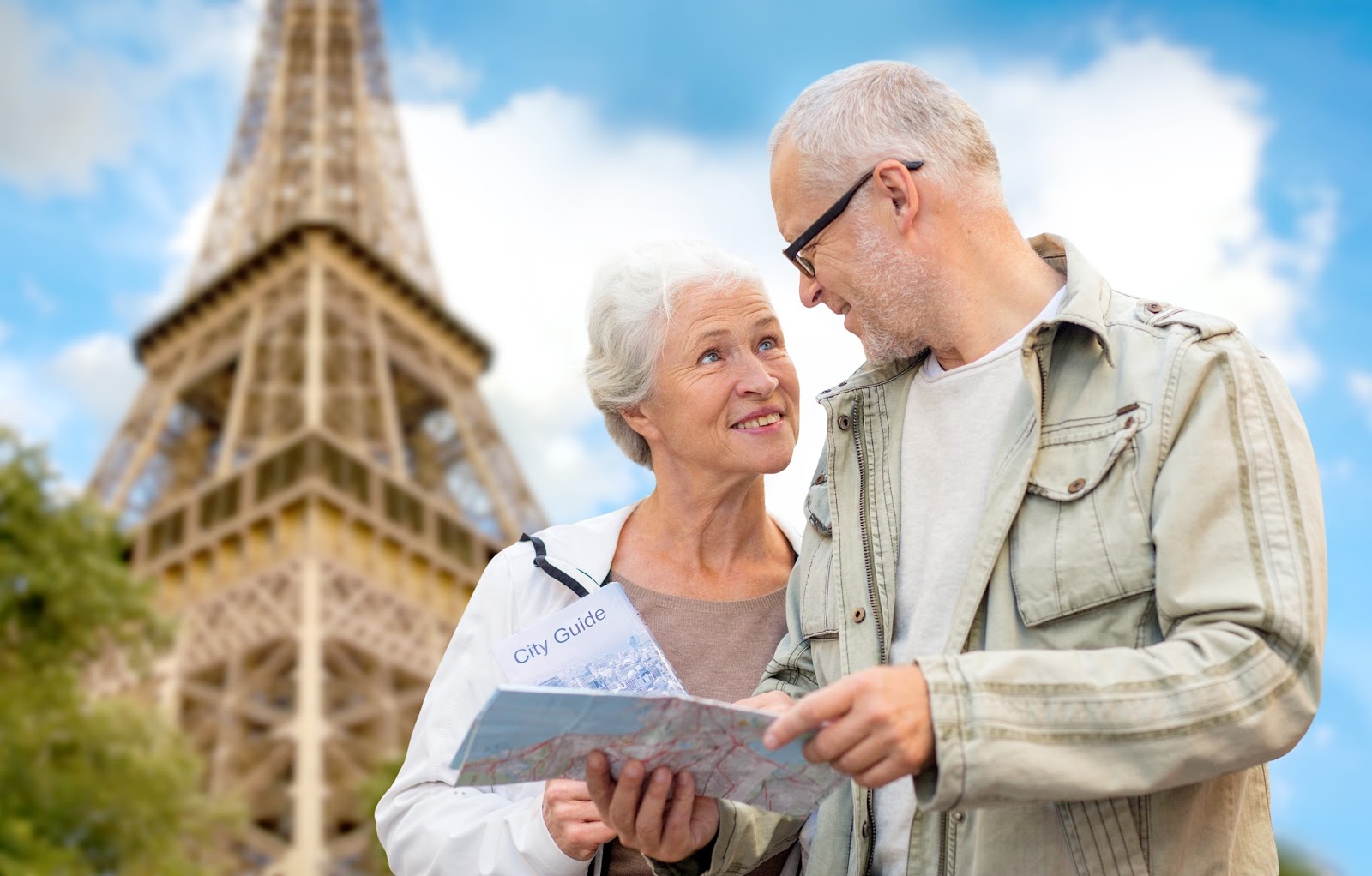Seniors Holiday Travel: The golden years are a time for adventure, and for many seniors, that means exploring new horizons. But planning a holiday as a senior requires careful consideration of factors beyond simply choosing a destination. This guide delves into the essential elements of planning a memorable and safe trip, addressing transportation, accommodation, health concerns, budgeting, and activities tailored to the needs and desires of older travelers.
From choosing the perfect destination to navigating airports and ensuring accessible accommodations, we’ll equip seniors with the knowledge and resources for a truly enriching experience.
This comprehensive guide covers everything from selecting senior-friendly destinations and comparing transportation options to budgeting effectively and prioritizing health and safety. We’ll explore diverse accommodation choices, highlight suitable activities, and offer practical tips for a comfortable and enjoyable journey, ensuring that every senior traveler can create unforgettable memories.
Accommodation Choices for Seniors
Choosing the right accommodation is crucial for a relaxing and enjoyable holiday for senior travelers. Factors such as accessibility, comfort, and proximity to amenities significantly impact the overall experience. This section explores various senior-friendly options and highlights key features to consider.
Senior-Friendly Accommodation Options
Several accommodation types cater specifically to the needs of senior travelers. Hotels, resorts, and vacation rentals all offer varying degrees of accessibility and comfort features. For example, many hotels now offer “senior suites” or adapted rooms, while some resorts specialize in providing wellness and relaxation services geared towards older adults. Vacation rentals often allow for greater customization and control over the environment.
Accessibility Features in Senior-Friendly Accommodations
Accessibility features vary depending on the type of accommodation and the specific establishment. Hotels may offer roll-in showers, grab bars in bathrooms, ramps, and elevators with ample space. Resorts often incorporate features like wider doorways, accessible pools and spa facilities, and adapted recreational activities. Vacation rentals can be customized to a greater extent, allowing seniors to arrange for necessary accessibility aids prior to their stay.
For example, a vacation rental might offer adjustable beds or the ability to bring in specialized equipment like wheelchairs ramps.
Questions Seniors Should Consider When Booking Accommodation
Before booking, seniors should confirm the presence of specific accessibility features relevant to their individual needs. Information regarding the availability of ramps, elevators, grab bars, and adapted bathrooms should be explicitly verified. The proximity of the accommodation to medical facilities and emergency services should also be considered. Furthermore, the ease of access to amenities such as restaurants, shops, and transportation should be assessed.
Finally, the availability of assistance services, such as housekeeping or concierge services, should be explored to ensure a comfortable and convenient stay.
Check what professionals state about find best cruise deals and its benefits for the industry.
Budgeting for Senior Holiday Travel
Planning a holiday requires careful budgeting, especially for seniors who may be on a fixed income. A well-structured budget ensures a relaxing and enjoyable trip without the stress of unexpected expenses. This section Artikels various budgeting methods and offers practical tips for cost savings.
Budgeting Methods for Senior Travelers, Seniors holiday travel
Several methods can help seniors effectively budget for their holiday. The most common approach is creating a spreadsheet or using budgeting apps to track expenses. This involves listing all anticipated costs, from flights and accommodation to daily meals and activities. Another approach involves allocating a fixed daily spending amount, which promotes disciplined spending and prevents overspending. A third method is to use the “envelope system,” where cash is allocated to specific expense categories (e.g., food, activities, souvenirs) in separate envelopes.
This provides a visual representation of the remaining budget and helps prevent overspending in any one area.
Saving Money on Travel Expenses for Seniors
Seniors can significantly reduce travel costs by utilizing several strategies. Booking flights and accommodation well in advance often secures lower prices. Traveling during the off-season or shoulder season (periods between peak and off-season) can yield significant savings on flights and accommodation. Consider alternative accommodation options such as vacation rentals or guesthouses, which are often cheaper than hotels.
Taking advantage of senior discounts offered by airlines, hotels, and attractions can also lead to substantial savings. Furthermore, opting for public transportation or walking instead of taxis can significantly reduce transportation costs. Packing light can also save money by avoiding checked baggage fees. Finally, preparing some meals yourself, rather than eating out constantly, can considerably lower food expenses.
Sample Budget for a Ten-Day Senior Holiday Trip
This sample budget assumes a trip for two seniors to a moderately priced destination, such as a European city. These are estimates and actual costs may vary depending on the chosen destination and specific preferences.
| Expense Category | Estimated Cost |
|---|---|
| Flights (round-trip for two) | $1,500 |
| Accommodation (10 nights) | $1,000 |
| Food (10 days) | $700 |
| Activities & Entrance Fees | $500 |
| Transportation (local) | $200 |
| Souvenirs & Miscellaneous | $100 |
| Total Estimated Cost | $4,000 |
Note: This is a sample budget and actual costs may vary significantly depending on the destination, travel style, and time of year. It is crucial to research specific costs for your chosen destination and adjust the budget accordingly.
Tips for Comfortable and Enjoyable Travel: Seniors Holiday Travel

Planning a holiday is exciting, but for senior travelers, comfort and ease are paramount. This section offers practical advice to help ensure a smooth and enjoyable trip, minimizing potential stressors and maximizing the pleasure of exploring new destinations. Careful planning and preparation are key to a successful senior travel experience.
Packing Light and Comfortably
Packing efficiently is crucial for seniors. Overpacking leads to unnecessary strain and discomfort, especially when navigating airports and public transportation. Prioritize lightweight, wrinkle-resistant clothing items in neutral colors that can be easily mixed and matched. Choose comfortable, supportive walking shoes that have been broken in before the trip. Consider packing versatile clothing items such as a shawl or light jacket that can provide warmth or extra layers as needed.
A well-organized packing cube system can help maximize space and keep belongings neat. Remember to pack any necessary medications in their original containers and easily accessible locations. A small, lightweight carry-on bag containing essential items such as medication, glasses, and important documents is recommended.
Managing Jet Lag and Fatigue
Jet lag can significantly impact the enjoyment of a trip, especially for older travelers. Strategies for mitigation include adjusting your sleep schedule gradually in the days leading up to the departure, drinking plenty of water to stay hydrated, and avoiding alcohol and caffeine, especially during long flights. Upon arrival at your destination, try to get outside and expose yourself to sunlight to help regulate your circadian rhythm.
Short, regular walks can also help combat fatigue. Consider booking accommodations that provide a quiet, comfortable environment conducive to rest. If possible, schedule less strenuous activities for the first few days of the trip to allow your body to acclimatize to the new time zone.
Maintaining a Healthy Lifestyle While Traveling
Maintaining a healthy lifestyle while traveling is essential for energy levels and overall well-being. Pack healthy snacks such as nuts, fruits, and vegetables to avoid relying on less healthy options. Stay hydrated by drinking plenty of water throughout the day. Seek out opportunities for light exercise, such as walking tours or swimming, to help maintain physical fitness and prevent stiffness.
Many hotels offer fitness centers or nearby walking paths. Prioritize meals with plenty of fruits and vegetables, and consider incorporating some familiar food choices to maintain a sense of routine. Remember to consult your doctor before making significant changes to your diet or exercise routine while traveling.
Planning a senior holiday trip needn’t be daunting. With careful consideration of factors like accessibility, health, and budget, seniors can embark on enriching travel experiences. By utilizing the resources and tips Artikeld in this guide, older travelers can confidently plan and execute a safe, comfortable, and truly memorable holiday, creating lasting memories and enjoying the rewards of well-deserved relaxation and adventure.
Remember, the journey is as important as the destination, and with proper planning, every senior can experience the joy of travel to the fullest.



